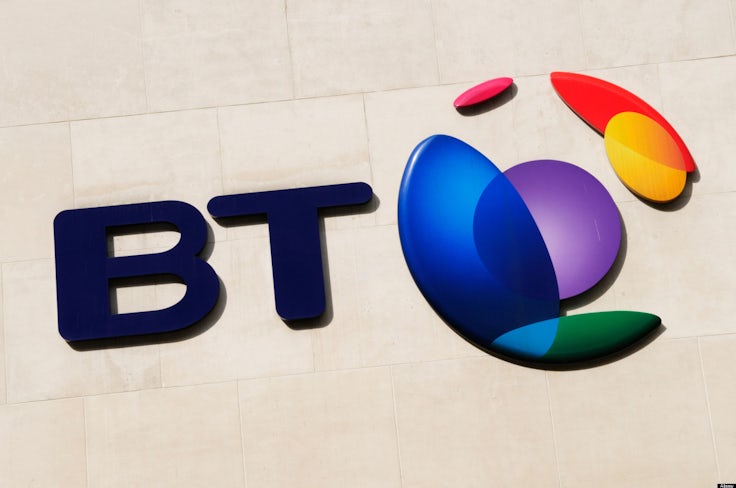Telecoms brands bank on ‘quad play’ to reverse sector’s decline
As BT buys EE, Three buys O2 and Sky sets up a mobile service, telecoms brands are rushing to join Virgin in offering TV, broadband, landline and mobile. But will consumers see value in taking four services from one company?

The emergence of ‘quad play’ telecom operators in the UK offering landline, TV, broadband and mobile services could prompt brands in the sector to radically overhaul their proposition to consumers, a new report suggests.
The industry is in a state of flux following BT’s offer in February to buy mobile network EE for £12.5bn. If approved by regulators, the deal would have far-reaching consequences for consumers and prompt further consolidation across the telecommunications market, according to research group Mintel.
The move towards quad play is driven by telecom groups seeking to expand their services as revenues from existing services fall. Mintel reports that the value of the UK telecom market has declined steadily in recent years and was worth £38.2bn last year, down 8% from 2008 sales (£41.7bn). It attributes the fall to “strict regulation and intense competition”, as well as to technological changes that have seen people make fewer phone calls in favour of cheaper internet messaging services.
By bringing on board EE’s 25 million customers, BT will more than treble its own customer base. Combined with its broadband network, landline service and TV offer, which includes rights to show Premier League football, the company would have the ability to cross-sell four core services to its customers.
The deal is part of a wider trend of convergence across the sector. Around the same time as the BT-EE announcement, Sky revealed that it is to enter the mobile market for the first time through a partnership with O2. The deal will not affect existing O2 customers, but turns Sky into a quad player by enabling it to offer mobile services through O2’s network from 2016. Meanwhile the £10.3bn acquisition of O2 by Three owner Hutchison Whampoa, announced in March, is set to create the UK’s largest mobile network.
Despite this flurry of deals in the market, Mintel warns that brands will face a stiff challenge in attempting to sell new services to customers. It notes that in the US, where quad play companies are more prevalent, market penetration is still relatively low with only 13% of households expected to buy all four services from one firm in 2016. Similarly it highlights that Virgin Media – an existing quad play company in the UK – has only managed to persuade 17% of its customers to take all four services.

“The concept is here to stay, but questions remain over the appetite for such a bundle unless there are significant cost benefits,” says Terry Leggett, senior B2B analyst at Mintel. He adds that the success of “communication super groups” will depend on their ability to offer strong, co-ordinated customer service across all areas of their offering.
Announcing EE’s financial results last week, chief executive Olaf Swantee said the company had recruited 1,000 more call centre staff in the UK in the first quarter of the year in order to improve customer service. The operator is laying the groundwork for the BT takeover, including by moving more of its customers onto high-speed 4G contracts. “Customers will be able to get better deals when they can buy four products, instead of one or two, from the same company,” Swantee told the BBC.
Earlier this month BT also launched a new advertising campaign starring actor Ewan McGregor in order to push its growing array of services. The campaign focuses on a different service in each ad, including BT TV in one and BT Infinity broadband in another, but the cumulative effect is to convey the breadth of BT’s offer.
The campaign, which plays out like a ‘behind the scenes’ parody of the advertising process, is a significant departure for BT following 10 years of its ‘Adam and Jane’s love story’ and similarly character-driven ‘flatmates’ campaigns. Consumer marketing director David James claims the ads are an opportunity to introduce its services to the public “in an entertaining and unique way”.
The Mintel report points to a slow trend towards mobile usage rather than fixed telecommunications – hence the recent spate of deals in the mobile space. It states that the UK’s retail telecom markets are now valued at a combined £27.8 billion, with 55% accounted for by mobile last year compared to 52% in 2008.
While revenues derived from SMS and MMS messaging fell sharply in the UK mobile market in both 2013 and 2014, income derived from data services on mobile networks increased by almost 60% between 2010 and 2014, the study also shows. As emerging quad play companies expand their fight for customers to the mobile sector, the telecoms industry looks set to become even more competitive.






